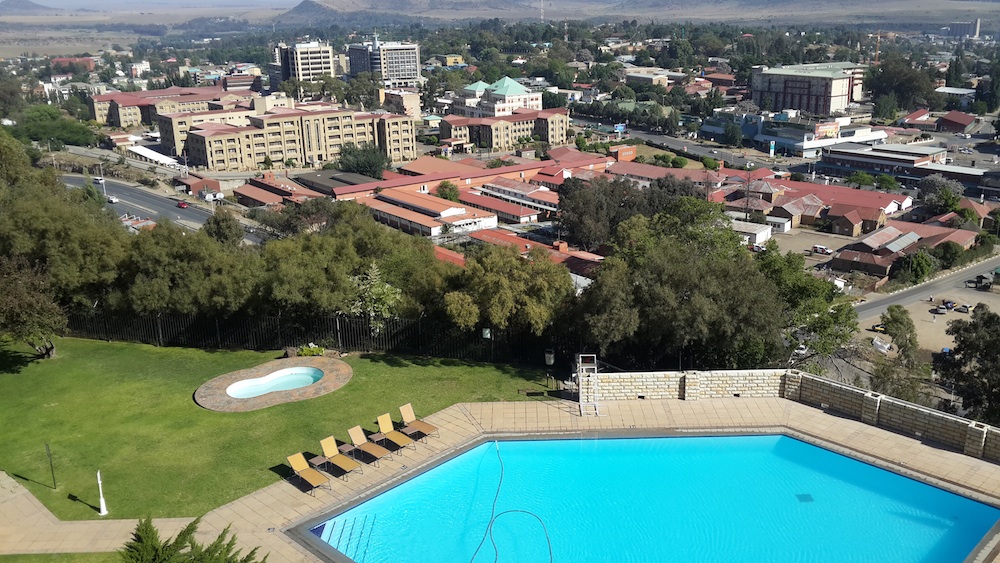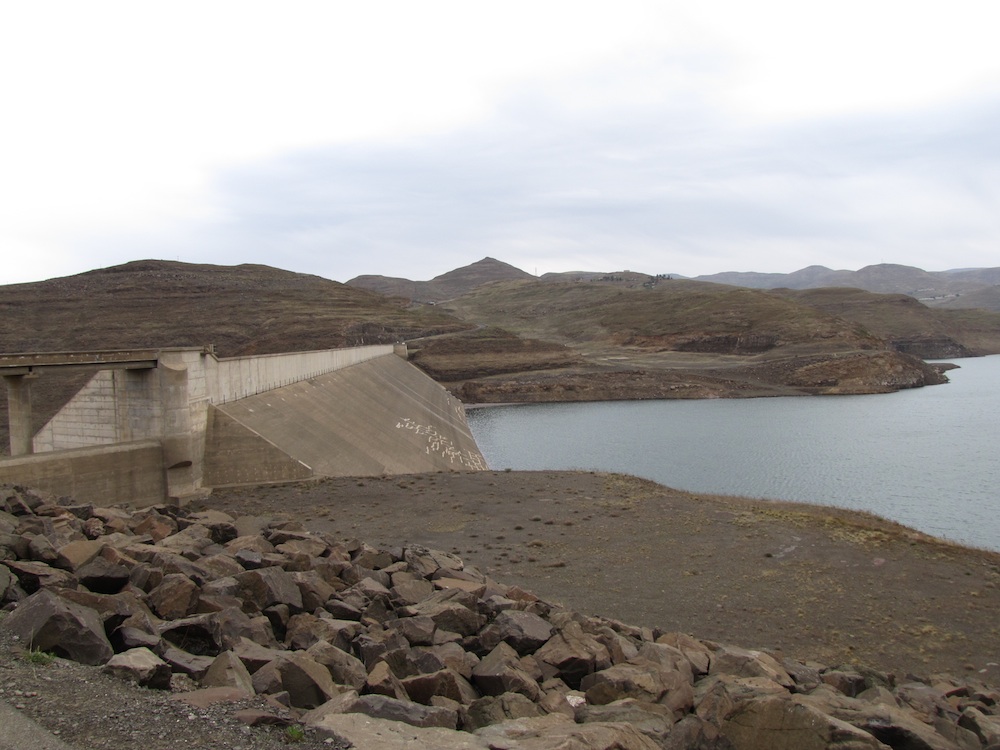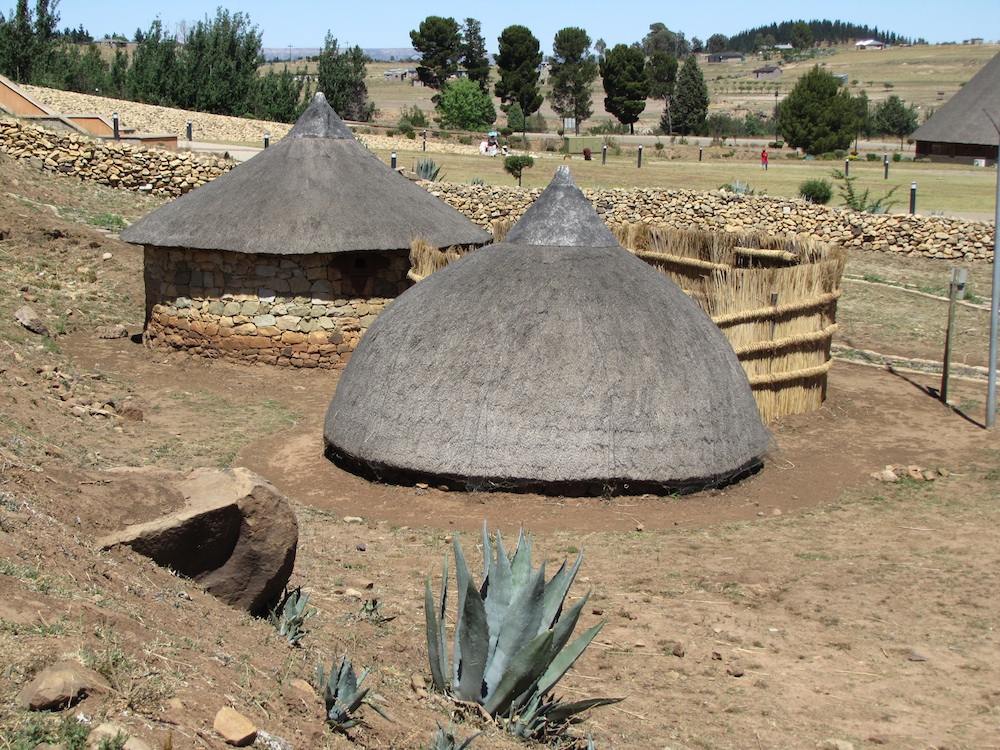If you want to learn about a country, try getting naked with the locals in the sauna for a while.
That wasn’t the plan when I sat on the hot wooden bench behind a large lady wearing nothing but a shower cap. But we got chatting, as naked people do, when she asked why I was in a hotel sauna in Lesotho. She was a lecturer in accountancy in one of this tiny kingdom’s two universities, and soon we were discussing education and the #FeesMustFall campaign.
“I don’t understand South Africans, they want everything for free,” she tutted. Lesotho kids get free education up to tertiary level, but pay back the cost when they get a job after graduation. Now rampant unemployment is making that difficult, since many of her accountancy students graduate with no hope of finding work. We threw more water on the coals and sat in quiet contemplation.
 The next day, six women squeezed into the rather small sauna at the AVANI Lesotho Hotel & Casino, and one told interesting tales about her job with the tax department. What happens in the sauna stays in the sauna, but suffice to say that South Africa has Lesotho completely surrounded, and our financial shenanigans seem to be contagious.
The next day, six women squeezed into the rather small sauna at the AVANI Lesotho Hotel & Casino, and one told interesting tales about her job with the tax department. What happens in the sauna stays in the sauna, but suffice to say that South Africa has Lesotho completely surrounded, and our financial shenanigans seem to be contagious.
To witness another sort of monetary madness the AVANI is ideal, because every night its casino is full of Chinese people playing blackjack, roulette and baccarat with as much energy as they expend in their day jobs.
Lesotho is steadily filling with Chinese immigrants as their construction companies conduct infrastructure projects. They built Maseru’s convention centre and industrial zone full of factories, and were involved in building the excellent roads to Mohale and Katze Dams in the massive Lesotho Highlands Water Project.
Gaming VIP manager Linky Engelbrecht gave us a casino lesson, explaining the rules, inciting us with free chips, and sharing insider tips on how not to lose our stash. I enjoyed the element of intelligence needed for blackjack and pocketed a profit of R350. Which is roughly half the amount that one guy lost on every spin of the roulette wheel.
Lesotho is way more of a business destination that a tourism magnet. Its attractions remain very much undersold, including gorgeous mountain scenery, skiing and winter snow sports, excellent hiking and mountain biking, the longest abseil in the world with a 204m drop, and the chance to trek with the country’s famous ponies. It’s also pretty cheap – my handmade straw hat with the distinctive pointy top shaped like Qiloane Mountain only cost R85. You don’t even need to change money, because the rand is legal along with the maloti, and worth the same. Almost everybody speaks excellent English too, since school lessons are taught in English.
 To really enjoy Lesotho you need to leave the capital of Maseru far behind, because this is outdoor territory. One morning we set off to Mohale Dam, up five hairpin switchbacks including God Help Me Pass. The roads are tarred, but I still feel queasy as we negotiate bend after bend through spectacular scenery. The driving’s not always as good as the roads, and we pass a buckled car abandoned and unsalvageable down a hillside.
To really enjoy Lesotho you need to leave the capital of Maseru far behind, because this is outdoor territory. One morning we set off to Mohale Dam, up five hairpin switchbacks including God Help Me Pass. The roads are tarred, but I still feel queasy as we negotiate bend after bend through spectacular scenery. The driving’s not always as good as the roads, and we pass a buckled car abandoned and unsalvageable down a hillside.
I watch cows being herded, sheep and goats grazing on rocky inclines, and shepherd boys wrapped in blankets with stark white gumboots to keep their feet dry in grass wet from the mountain mists.
We pass thatched rondevals, men sitting idle by the road and a kid bowling a tyre along for fun. I spot a few blanketed men on ponies, and I feel like I’ve entered a picture postcard.
When we finally reach Mohale Dam a vegetation line shows where the water sometimes reaches in this massive valley. Now the mountain walls are dry, with an enduring drought lowering the dam to only 39% of full capacity.
A stern woman conducts a short tour and takes us into the underground service tunnel. It’s an engineering marvel, with water channeled through a hydro power station to generate electricity, then flowing into South Africa in exchange for much needed money.
Plans to enjoy a boat trip on the dam are scrapped because of the whistling wind, so we eat burgers and chips at Mohale Orion Lodge, where the speed of service is suitably glacial. As the land flattens out again we pass hawkers at the crossroads selling carrots, and I think our Joburg guys are missing a trick.
 At Thaba-Bosiu Cultural Village a series of replica huts recreate the settlement built by Lesotho’s founder King Moshoeshoe 1 on the adjacent mountain. About 4,000 people lived on the plateau from 1824 and repelled repeated incursions by rival tribes, Brits and Boers for more than 40 years.
At Thaba-Bosiu Cultural Village a series of replica huts recreate the settlement built by Lesotho’s founder King Moshoeshoe 1 on the adjacent mountain. About 4,000 people lived on the plateau from 1824 and repelled repeated incursions by rival tribes, Brits and Boers for more than 40 years.
You can hike to the top to see the remnants of the fortifications and the king’s grave. The king had 140 wives, but they lived with his warriors and he just borrowed them occasionally. My favourite huts are built entirely of loose stones pieced together in a 3D jigsaw puzzle to create solid, impenetrable homes. They’re amazingly intricate, tall enough to stand up in and with viewing holes only visible from inside.
Close to the cultural village is a rock that looks uncannily like the face of a lion, predictably called Lion Rock. There are dinosaur footprints in the vicinity too, and there’s even a dinosaur named after the country, the Lesothosaurus, a lizard that roamed 200 million years ago. The countryside feels like not much has changed for centuries, although now only chickens and goats roam wild, not Lesothosaurusi.
Because tourism is very understated, Willem van Herden, the resident manager at the AVANI Lesotho, is working with Lesotho Tourism Development Corporation to develop day trips or overnight visits to further flung attractions. He hopes it will boost his hotel bookings and vitally, pump more foreign money into local communities, crafts centres and restaurants. My friends in the sauna would be delighted to hear that.
The AVANI Maseru Hotel is a great base if you're staying in Lesotho for business or for leisure.